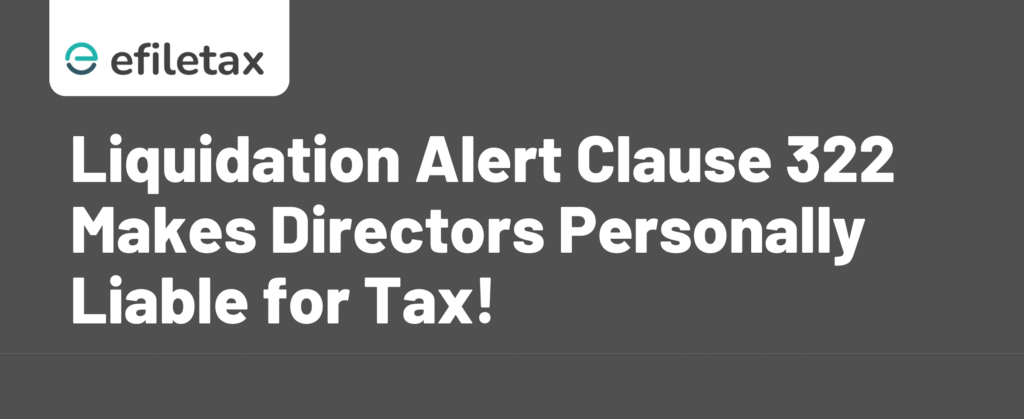
Personal Liability in Liquidation: Understand Clause 322 vs. Section 178. Protect directors & liquidators from tax risks. Updated insights for 2025.
Personal Liability in Liquidation: Clause 322 vs. Section 178
When a company shuts down, unpaid tax dues don’t disappear. Personal liability in liquidation decides whether directors and liquidators pay from their own pockets. The Income Tax Bill, 2025 brings Clause 322, updating old Section 178 of the Income Tax Act, 1961.
Let’s break it down.
Why Personal Liability Matters in Liquidation
Liquidators manage asset sales, settle creditors, and handle final tax dues. If taxes remain unpaid, the tax authority can hold them personally liable.
Key reasons this matters:
- Prevents tax evasion during winding-up.
- Ensures timely tax clearance.
- Protects government revenue.
Clause 322 of Income Tax Bill, 2025: What’s New?
Clause 322 modernises and tightens tax recovery during liquidation. It aligns with current business practices and past court rulings.
🔑 Main features of Clause 322:
- Liquidator must notify the Assessing Officer within 30 days of appointment.
- AO will notify the tax due within 3 months.
- Liquidator must set aside tax dues before distributing other assets.
- Failure to comply → personal liability for unpaid tax.
This echoes Section 178 but clarifies timelines and duties.
Comparison: Clause 322 vs. Section 178
| Point | Section 178 (1961 Act) | Clause 322 (2025 Bill) |
|---|---|---|
| AO Notification by Liquidator | Mandatory, timeline less clear | Mandatory, within 30 days |
| AO Response | Reasonable time | 3 months specified |
| Liability | Personal liability if tax not set aside | Same, with clearer conditions |
| Legal Reference | Income Tax Act, 1961 | Income Tax Bill, 2025 |
Expert Tip on Avoiding Personal Liability
👉 Always issue the tax clearance intimation on time.
Many liquidators miss deadlines due to miscommunication with the department. Appoint a tax advisor early and use Efiletax’s liquidation tax services to avoid costly mistakes.
Legal Angle
- CBDT Clarification: Similar principles were upheld in multiple High Court cases, confirming personal liability for negligent liquidators.
- Future Impact: With Clause 322, expect stricter compliance checks during winding up.
FAQs: Personal Liability in Liquidation
Q1: Who is liable if a liquidator ignores tax dues?
A: The liquidator becomes personally liable under Clause 322.
Q2: Is a director personally liable too?
A: Yes, if they help distribute assets without clearing tax dues.
Q3: Does Clause 322 apply to voluntary liquidation?
A: Yes, to all forms of liquidation under company law.
Key Takeaway
Personal liability in liquidation is stricter under Clause 322. Plan carefully, notify the tax office on time, and clear dues first. Use Efiletax to manage compliance smoothly.
✅ Need help with company liquidation tax compliance? Contact Efiletax today and avoid last-minute surprises!
Summary
Clause 322 of the Income Tax Bill, 2025 updates personal liability rules in liquidation, tightening duties for liquidators and directors versus old Section 178. Timely tax clearance prevents personal tax risk.